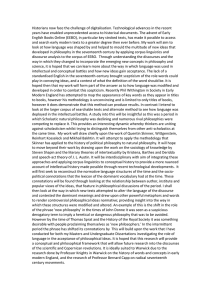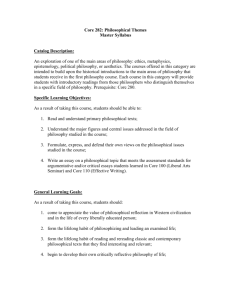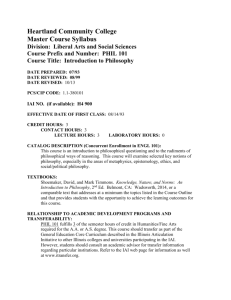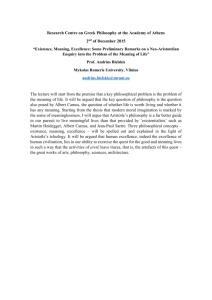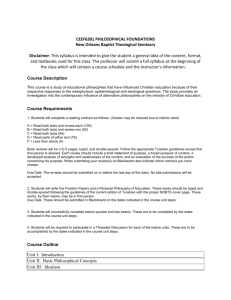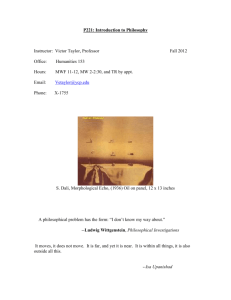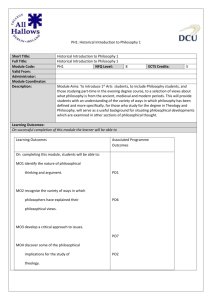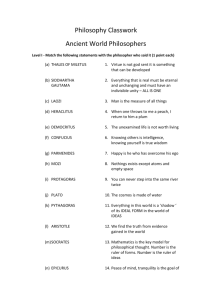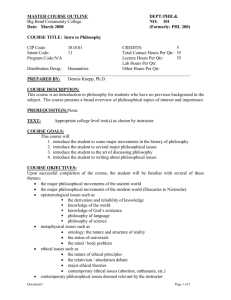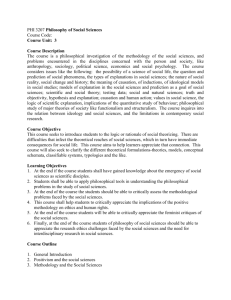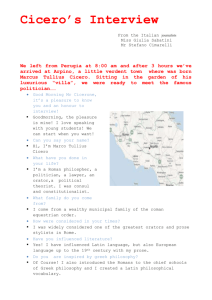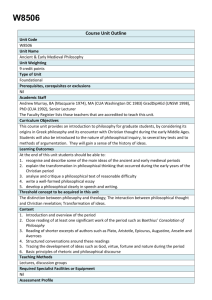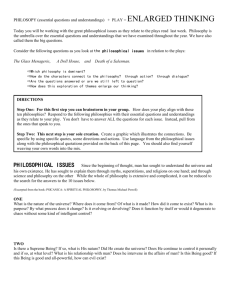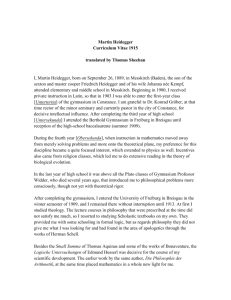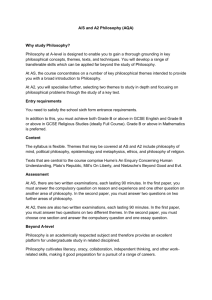here
advertisement
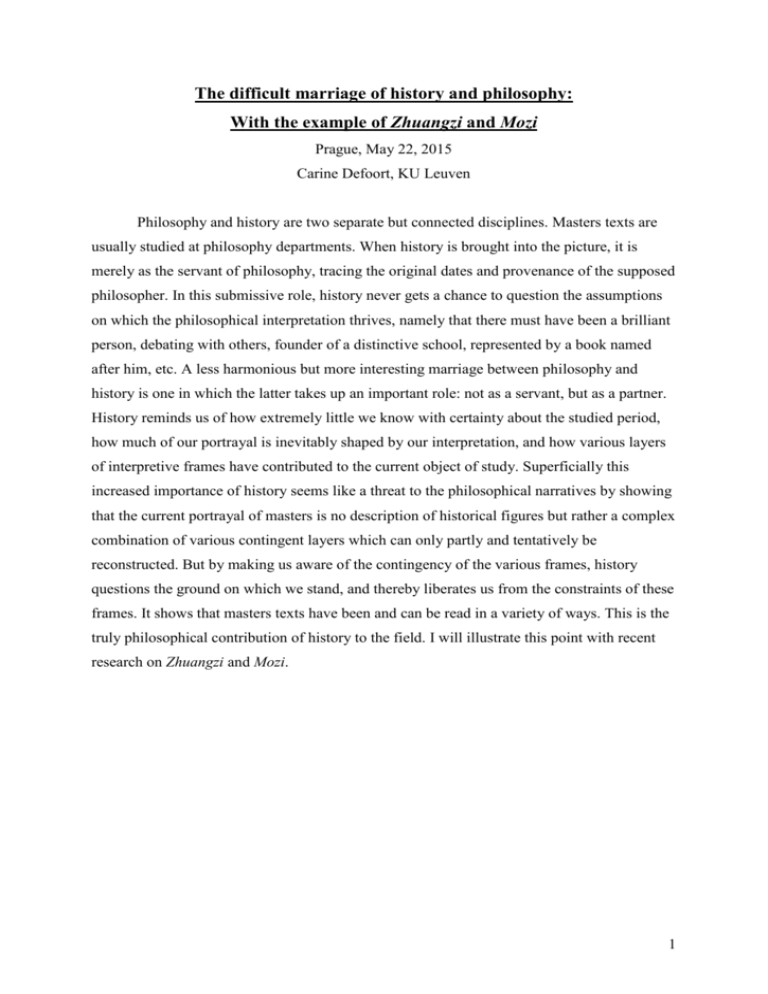
The difficult marriage of history and philosophy: With the example of Zhuangzi and Mozi Prague, May 22, 2015 Carine Defoort, KU Leuven Philosophy and history are two separate but connected disciplines. Masters texts are usually studied at philosophy departments. When history is brought into the picture, it is merely as the servant of philosophy, tracing the original dates and provenance of the supposed philosopher. In this submissive role, history never gets a chance to question the assumptions on which the philosophical interpretation thrives, namely that there must have been a brilliant person, debating with others, founder of a distinctive school, represented by a book named after him, etc. A less harmonious but more interesting marriage between philosophy and history is one in which the latter takes up an important role: not as a servant, but as a partner. History reminds us of how extremely little we know with certainty about the studied period, how much of our portrayal is inevitably shaped by our interpretation, and how various layers of interpretive frames have contributed to the current object of study. Superficially this increased importance of history seems like a threat to the philosophical narratives by showing that the current portrayal of masters is no description of historical figures but rather a complex combination of various contingent layers which can only partly and tentatively be reconstructed. But by making us aware of the contingency of the various frames, history questions the ground on which we stand, and thereby liberates us from the constraints of these frames. It shows that masters texts have been and can be read in a variety of ways. This is the truly philosophical contribution of history to the field. I will illustrate this point with recent research on Zhuangzi and Mozi. 1




